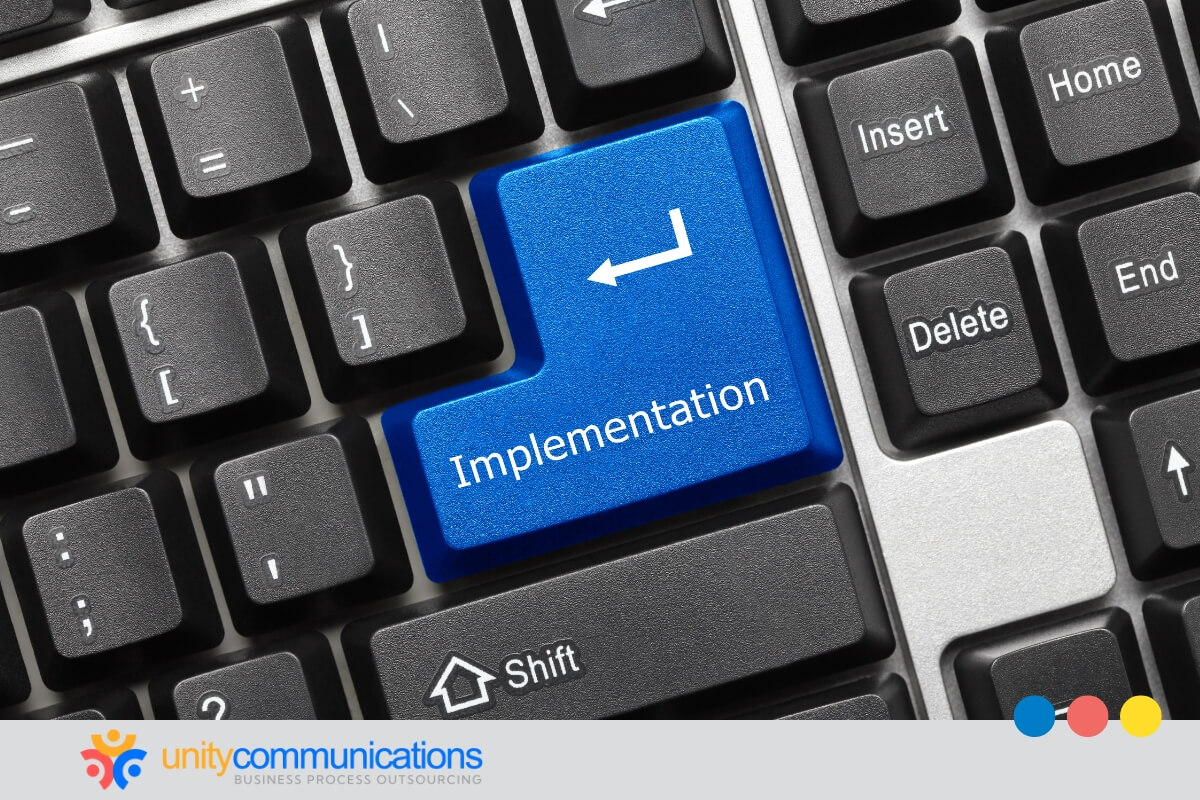IN THIS ARTICLE
Table of Contents
The real estate industry is increasingly embracing business process outsourcing (BPO) to gain access to third-party talent from around the world. However, if implemented incorrectly, this strategy might compromise service quality, operational efficiency, and client relationships.
The shift to BPO underscores the importance of training outsourced real estate agents. Comprehensive instruction equips external teams with the necessary skills and knowledge to meet client expectations and drive business success.
Keep reading to learn critical strategies for training outsourced real estate agents and maximizing real estate BPO services!
Foundations of effective training for outsourced real estate agents

First, what is BPO? It is the practice of hiring third-party vendors to manage non-core functions, enabling companies to focus on core activities. How outsourcing works in real estate is that the BPO company leverages its resources to oversee functions such as property management and customer service. This approach reduces costs, increases efficiency, and enhances service quality.
BPO in real estate deploys skilled agents and virtual assistants (VA) to manage outsourced activities. What the real estate VA excels in is handing back-end tasks. In fact, the main reason to hire a real estate VA is they bring industry knowledge, technological proficiency, and professionalism to any agency.
Although these BPO professionals are experts, training them in client companies’ services, workflows, and culture is still necessary. Training helps them manage tasks, meet client expectations, and maintain high service standards.
Developing effective training programs for outsourced real estate agents must be based on the following factors:
Agent needs
Assessing the training needs of outsourced real estate agents is crucial for developing programs tailored to their roles and responsibilities. Understanding their current capabilities and task requirements helps identify the skills to target to achieve optimal performance.
The first step in evaluating agent needs is conducting role analysis. Real estate firms must examine the specific tasks and responsibilities of outsourced agents to determine the necessary skills and knowledge to improve on or develop.
Real estate agencies must then collaborate with BPO partners to measure the current skills of outsourced agents against the results of the role analysis.
Training objectives
Establishing clear training objectives that align with business goals and compliance standards is essential for the success of any training program. This step provides a roadmap for measuring progress and ensuring that training efforts are focused and effective.
Here are tips for setting these objectives:
- Align with business goals. Real estate agencies must align training objectives with business strategies and targets.
- Focus on compliance standards. They must integrate legal and regulatory requirements into the training objectives.
- Create specific and measurable objectives. They must define precise, quantifiable objectives to track training effectiveness.
- Include skills development. Real estate firms must focus on developing the specific skills and knowledge required for agents to excel in their roles.
Implementing a training strategy for outsourced agents

Developing a robust training strategy for outsourced real estate agents can be challenging because of their demanding schedules and the need to maintain a work-life balance.
However, the effective techniques below can overcome these roadblocks and create a productive learning environment that enhances performance and job satisfaction.
Interactive learning modules
Interactive learning modules use virtual technology to create engaging and informative training experiences for outsourced real estate agents. These modules utilize multimedia elements, such as videos, simulations, and interactive quizzes, to enhance learning retention and engagement.
These modern tools offer flexible training options that accommodate agents’ schedules while effectively conveying essential skills and knowledge. They improve learning outcomes by promoting a dynamic and interactive training environment.
On-the-job training (OJT)
Practical, hands-on experiences are also effective for training outsourced real estate agents. This approach often includes shadowing experienced agents, role-playing customer interactions, and participating in simulations.
Additionally, real estate case studies help analyze market dynamics, negotiation strategies, and client management techniques. OJT offers valuable insights into handling diverse situations agents might encounter, developing their skills and improving their decision-making to help them deliver superior services.
Continuous education and support
Real estate businesses must continuously educate and support outsourced agents to keep them informed about the latest market trends, legal requirements, and best practices. Regular workshops, webinars, and access to industry resources are critical in continuously enhancing agents’ knowledge and skills.
Prioritizing continuous education ensures outsourced agents can adapt to evolving market conditions, maintain compliance with regulations, and deliver high-quality service that meets client expectations.
Measuring the effectiveness of training for outsourced real estate agents

Assessing the effectiveness of training programs identifies areas for improvement, optimizes training strategies, enhances operational efficiency, and boosts agent performance.
Here are techniques real estate agencies can use:
Feedback mechanisms
Establishing effective feedback mechanisms helps to continuously evaluate the impact of training efforts. By gathering insights from trained agents and clients, agencies can refine their training programs to better meet evolving needs and expectations.
Real estate firms might use structured surveys and questionnaires to gather quantitative feedback on training effectiveness and relevance. They might also conduct focus group discussions to explore qualitative experiences and gather suggestions for improvement.
To assess the impact of training, they can track sales figures, client retention rates, and customer satisfaction scores. Lastly, they can interview agents and clients for more detailed information or insights.
Performance metrics
Implementing key performance indicators (KPIs) can help evaluate the success of training programs within real estate agencies. It shows areas where agencies are performing well and those that need improvement to optimize agent performance and client outcomes.
These metrics typically include the following:
- Client satisfaction scores assess feedback from clients, measuring service quality and satisfaction.
- Agent productivity metrics track agent performance in areas such as sales volume, listings managed, and transaction completion rates.
- Retention rates monitor how well-trained agents retain clients and maintain long-term relationships.
- Compliance and accuracy ensure that agents adhere to legal requirements and demonstrate transaction accuracy.
The bottom line
A structured training approach for outsourced real estate agents equips them with the skills and knowledge to deliver exceptional service. Robust training programs enhance an agency’s outsourcing strategy, improve agent performance, and elevate service delivery standards.
Find out how your real estate business can take off with expert BPO services. Let’s connect today!





